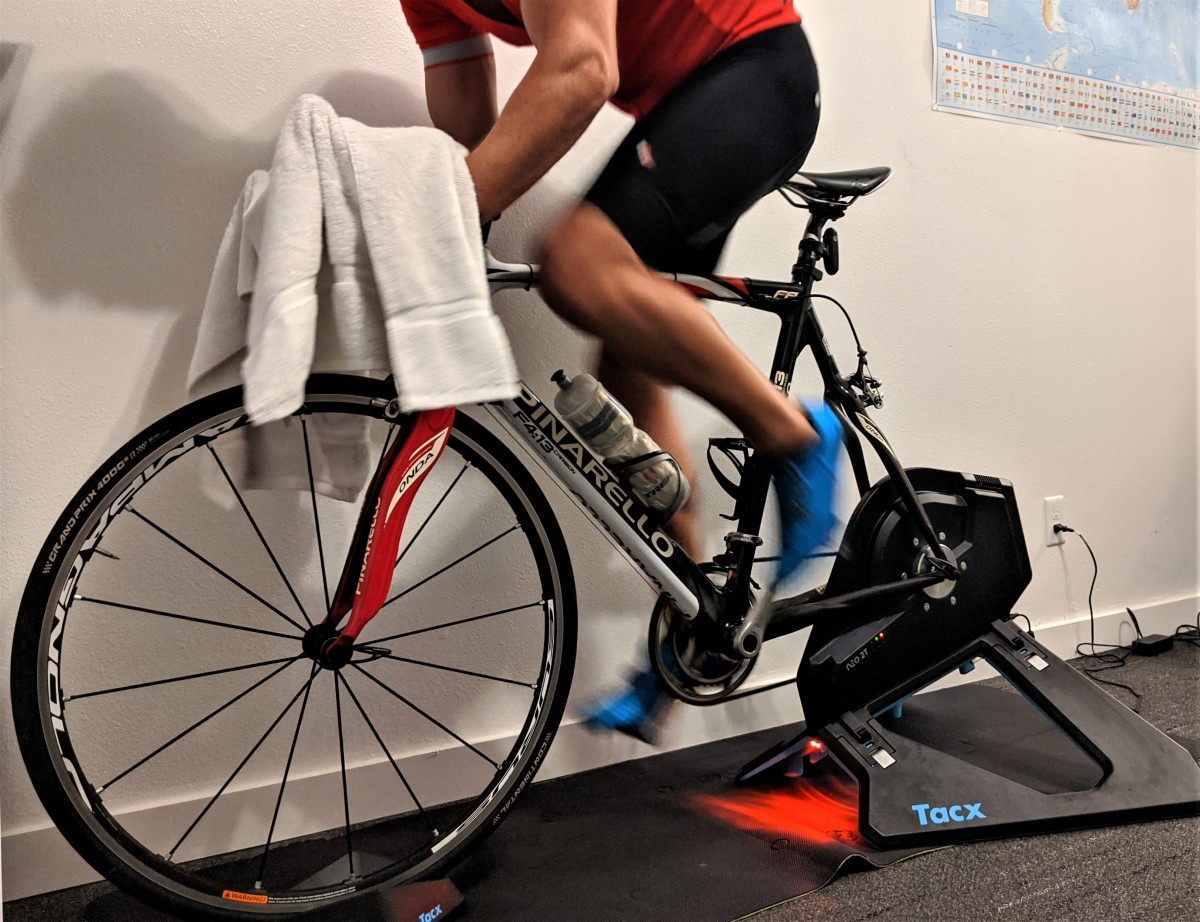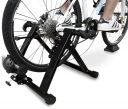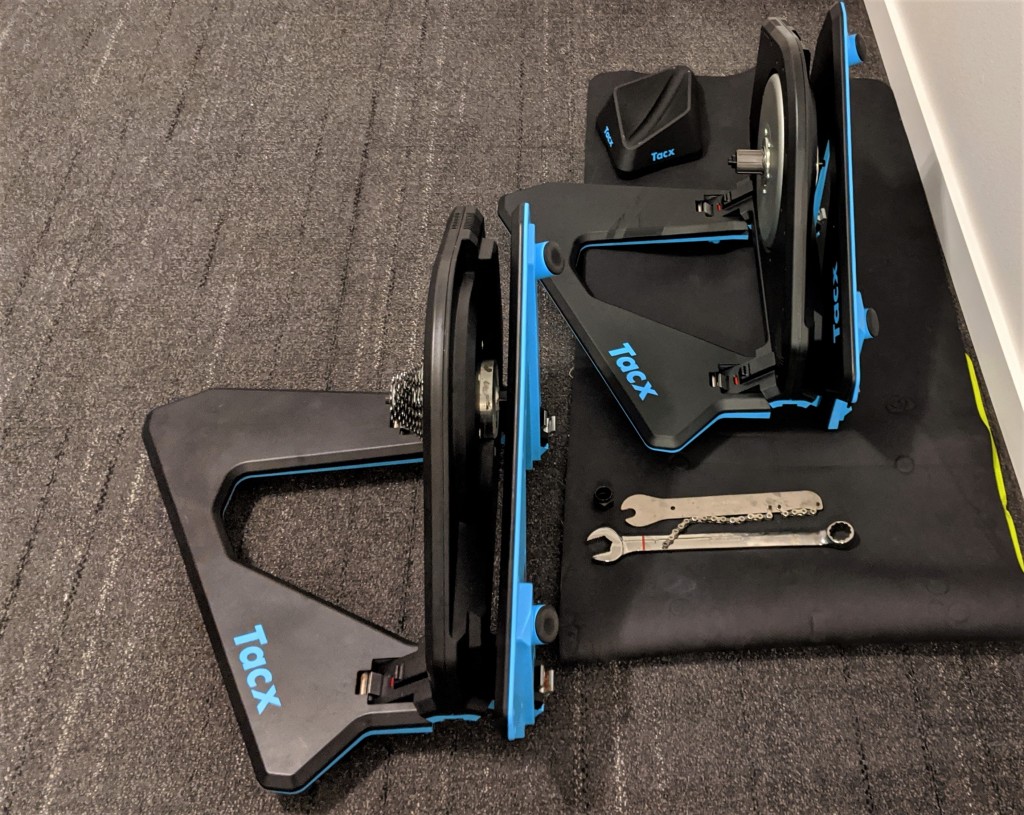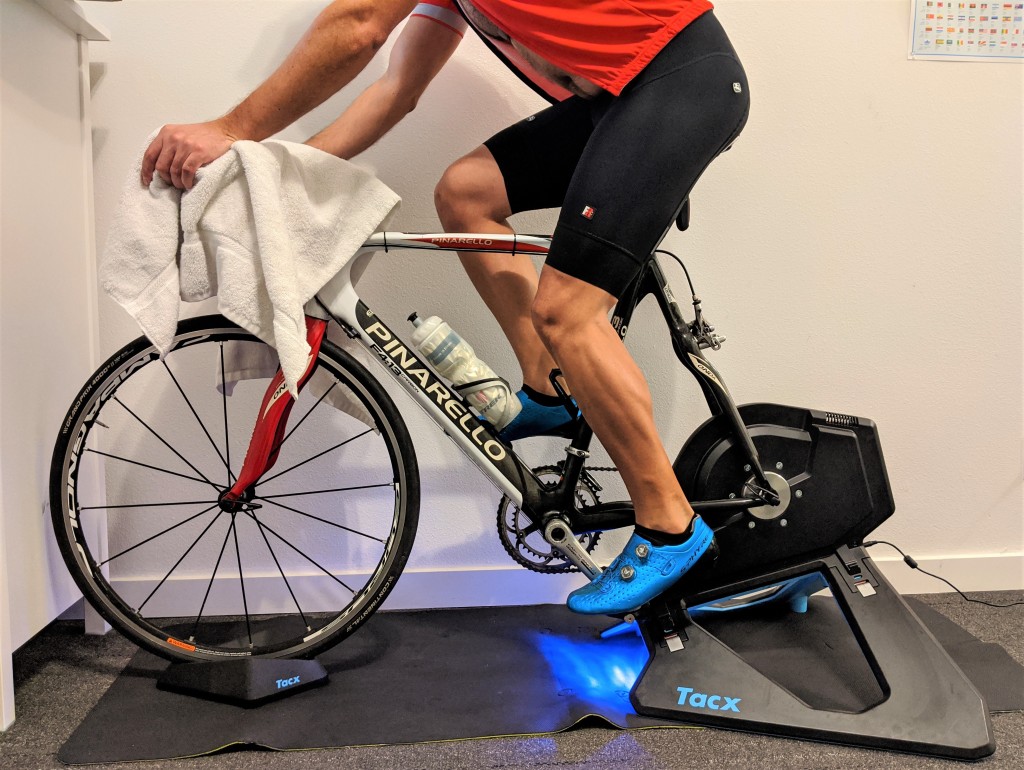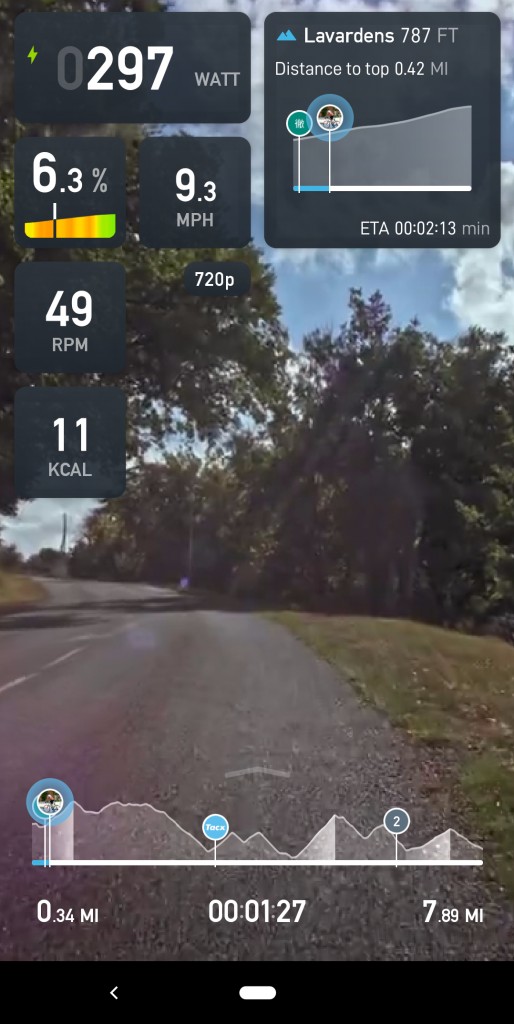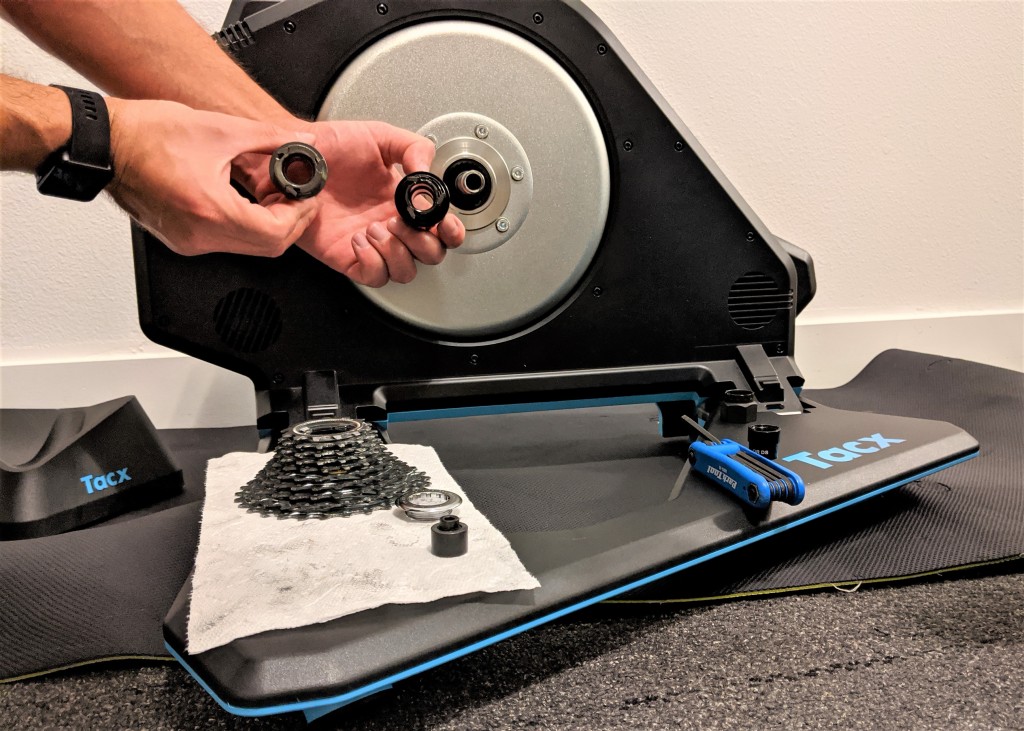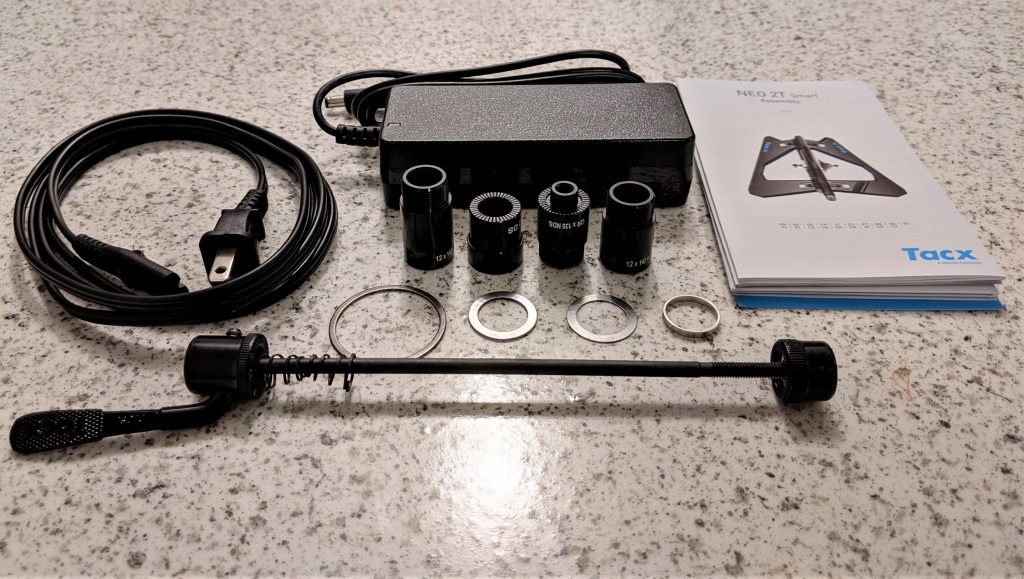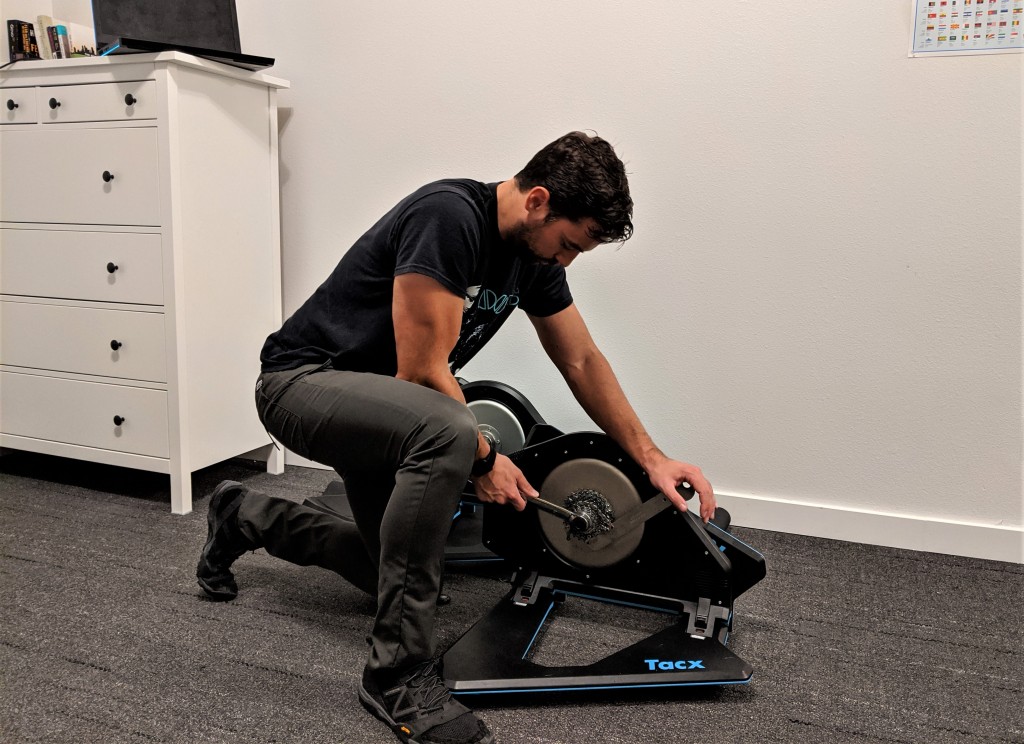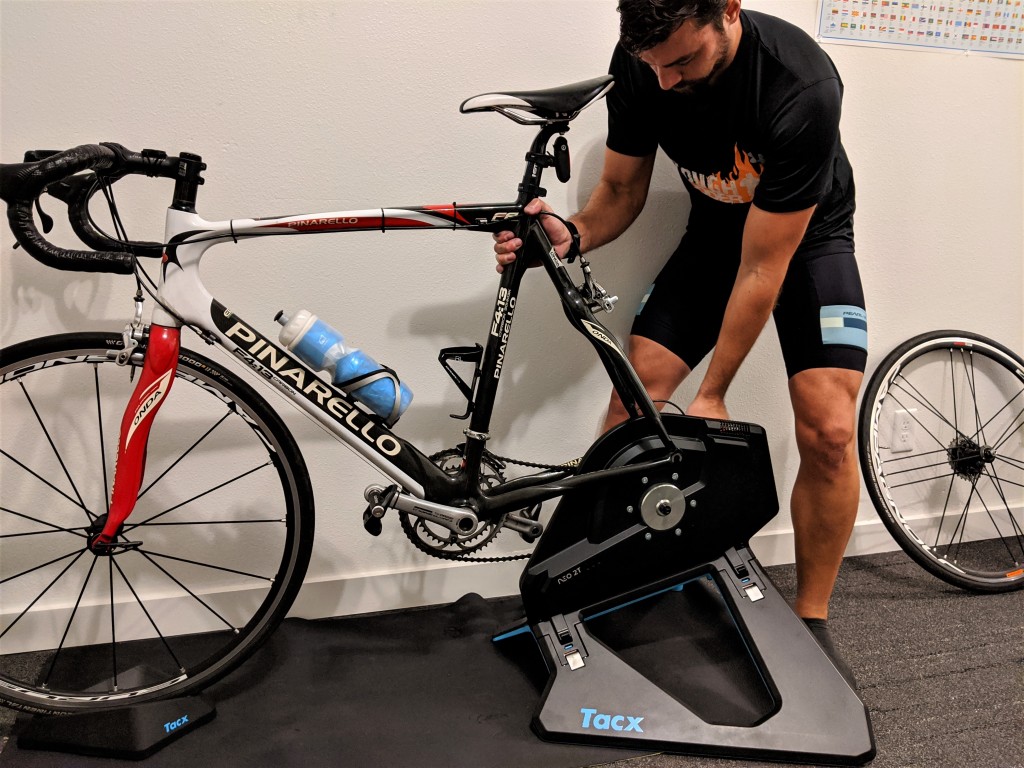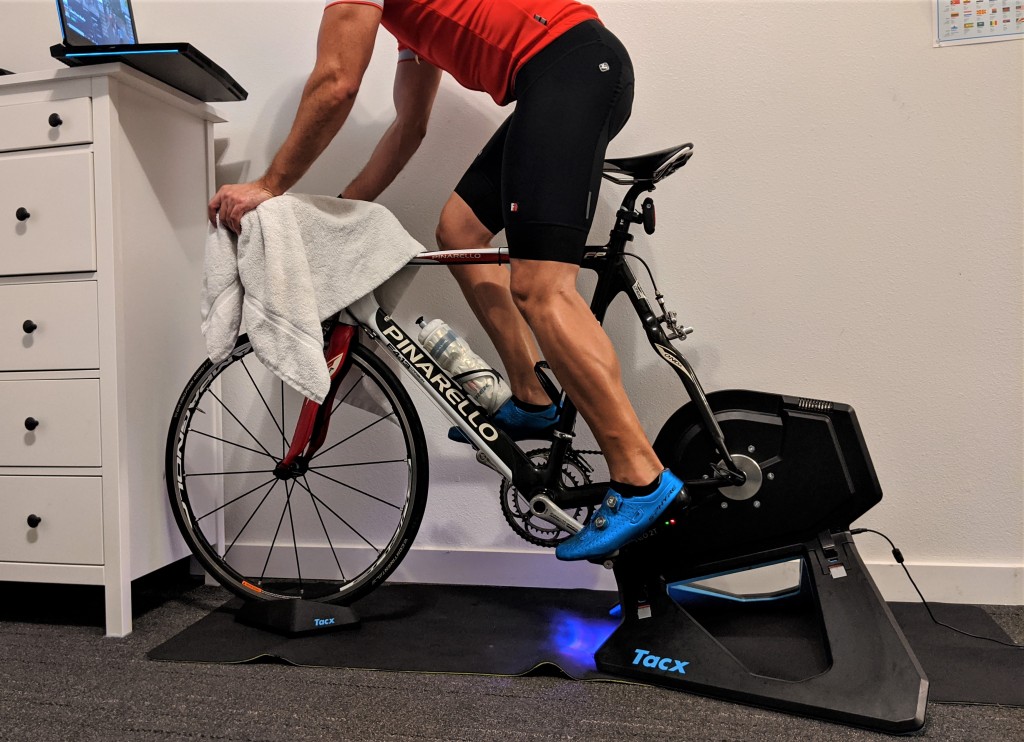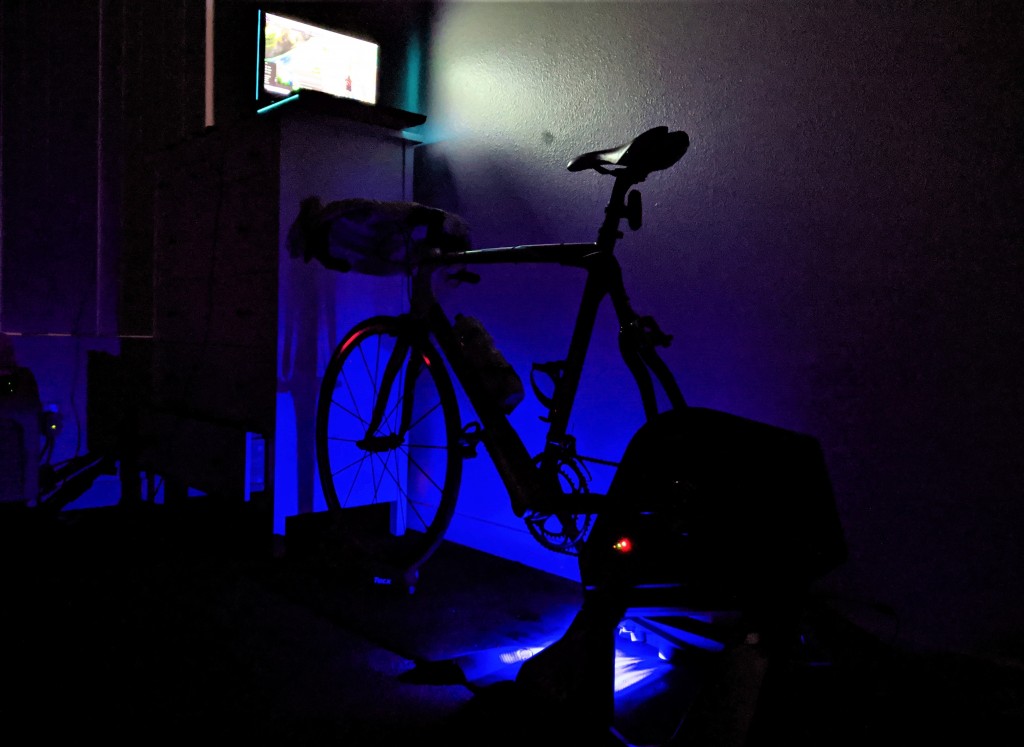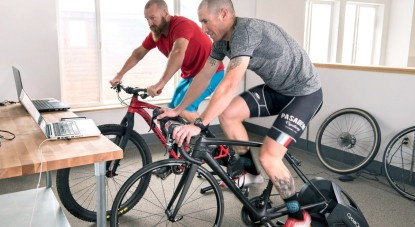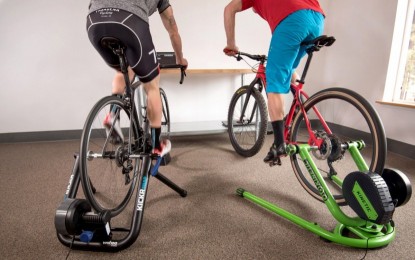Our Verdict
Compare to Similar Products
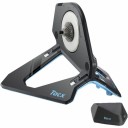 This Product
Tacx Neo 2T Smart | |||||
|---|---|---|---|---|---|
| Awards | Best Overall Smart Trainer | Best Bang for Your Buck Direct-Drive Trainer | Top Pick for Tire Drive | Notable for Standard Trainer | |
| Price | $899.99 at REI Compare at 4 sellers | $500.00 at REI Compare at 3 sellers | $350 List Check Price at Backcountry | $370 List | $126 List Check Price at Amazon |
Overall Score  |
|||||
| Star Rating | |||||
| Bottom Line | A great trainer, you'll be hard-pressed to find a better at-home training tool | This trainer brings premium performance to a more affordable price point | One of the best tire drive trainers, but still not as good as a direct-drive unit | This tire-drive trainer is our favorite, touting excellent performance at an affordable price | A super affordable but unrefined trainer for infrequent users |
| Rating Categories | Tacx Neo 2T Smart | Wahoo Fitness Kickr... | Wahoo Fitness Kickr... | Tacx Flow Smart Tra... | BalanceFrom Bike Tr... |
| Connectivity and Power Accuracy (25%) | |||||
| Road Feel (25%) | |||||
| Design (20%) | |||||
| Setup (20%) | |||||
| Portability (10%) | |||||
| Specs | Tacx Neo 2T Smart | Wahoo Fitness Kickr... | Wahoo Fitness Kickr... | Tacx Flow Smart Tra... | BalanceFrom Bike Tr... |
| Drive Type | Direct drive | Direct drive | Tire drive | Tire drive | Tire drive |
| Measured Weight | 47 lbs | 40 lbs | 38 lbs | 21 lbs | 19 lbs |
| Roll Out Time @ 200 watts | 26 seconds | 44 seconds | 45 seconds | 6 seconds | 5 seconds |
| Power Comparison | 1-3 watts, 1% | 3-5 watts, 2% | 10-15 watts, 5% | 10 watts, 5% | N/A |
| Communication Protocol | ANT+ FE-C, Bluetooth FTMS | ANT + FE-C, Bluetooth | ANT+ FEC, Bluetooth Smart | ANT+, Bluetooth | None |
| Dimensions L-H-W | 22.6" x 29.5" x 21.7" | 26" x 18.25" x 28.75" | 26.6" x 25.6" x 16.1" | 22"x22"x15" | |
| Storage Dimensions LxHxW | 24.4" x 10.2" x 17.3" | 20.75" x 7.5" x 20.5" | 22.2" x 16.1" x 9.7" | 22"x22"x15" | |
| Type of Trainer | Smart | Smart | Smart | Smart | Standard |
| Flywheel | Virtual | 12 lbs | 10.5 lbs | 3.5 lbs, Magnetic | 5 lbs, Magnetic |
| Axle compatibility | 130mm, 135mm || Adaptors for 142mm and 148mm available through Tacx | 130mm and 135mm skewer, 142mm and 148mm thru axle | 130mm, 135mm compatible || 142mm adaptor available through Wahoo | 130mm and 135mm, adapters available for other widths | 130mm and 135mm || May need 3rd party adaptors for 142mm and 148mm |
Our Analysis and Test Results
It's tough to beat the Neo 2T Smart. When you train using a 2T, you can play with all of the cool features, like pedal stroke analysis, and feel the road texture in virtual simulations. It gives you one of the best experiences among all the bike trainers we've tested, getting you pretty close to riding outdoors. We'll spend the rest of this review explaining precisely what that means by examining its performance across the most crucial metrics.
Performance Comparison
Connectivity and Power Accuracy
The Neo 2T uses the same communication protocols as its predecessor: Bluetooth Smart FTMS and ANT+ FE-C. There doesn't appear to have been any degradation in quality here. Some reports of difficulty connecting to independent training platforms like Zwift and some features not coming through when using ANT+, but that was most likely a platform issue, not a Tacx issue. At any rate, during our testing, we had no such issues.
Power data comes through just fine. There are slight lags, which can be annoying in ERG mode if you're making short sprints and must hit a high target for just a few seconds. It's even more annoying if you have a cadence target, but it's doable. As with the earlier versions, the power accuracy is accurate within 1%. We could not disprove that claim and found it to be the most accurate of our bunch. As with its predecessors, one of the coolest features of the bike trainer is that it retains all of its performance capabilities even when it's not plugged in, so you can still get in a ride if you forget your plug or aren't near an outlet, like the roadside. The only thing you won't get when unplugged is the simulated descent.
Road Feel
This area is where the Neo 2T really sets itself apart. Its big flywheel goes a long way to creating the inertia needed to simulate a real ride. Just like being out on the bike, when you first get on and start pedaling, you need to put a little effort into it to get the bike rolling. Same thing when you let off the gas for a bit and slow down a bit. You need to put energy back into the wheel to get back up to speed. The big flywheel works a treat for that. But there's a little more that goes into it.
The flywheel is the primary bit of machinery that facilitates the ride. In addition to that, there's a fair bit of tech and programming to smooth over the rough spots (or simulate rough spots). The 2T uses Dynamic Inertia, which uses some sort of algorithmic space magic to do with weight, speed, and angle of incline to adjust and compensate for simulating real-world physics. This is what allows it to convince you that you just flew down a descent and then sprinted up the next hill when you're doing rollers on a virtual course.
It's not perfect, but we found it among the best in our tested trainers, although the 3M is slightly better. It's close enough to make you forget you're on a trainer. Another cool bit of finessing from Tacx comes through redesigning their motor and its magnets. It's slightly quieter than the previous version, the Neo 2. The new design reduces movement from vibrations and air displacement, making it smoother. In addition to reducing general vibration, the powerful motor shakes and vibrates more intensely when going over rough terrain like boards, cobble, and gravel in simulators like Zwift and Tacx. And, of course, there's no change to the simulated descent. Just like in the real world, you can coast down a hill and don't need to pedal to keep your wheels spinning. Remember that this feature won't work if you're not plugged in. With all these sweet attributes, it's tough to have eyes for any other trainer.
Design
In terms of the overall structure of the Neo 2T Smart, it's one of the better designs. It's pretty simple, straightforward, and very stable, with just enough side-to-side play to allow you to move a little with your bike if you're out of the saddle. It sways with you as you crank, improving the natural feel and possibly saving your frame from the stress that would otherwise be going directly into it as you stand and kick.
Its weight isn't ideal, but that's unavoidable in the high-performance bike trainer world. The flywheel's inertia determines so much of that machine's performance, and weight is how you get there. The result is that it's the second most natural-feeling trainer on the market, in our judgment.
In this third iteration, the overall design remains primarily unchanged but has a few updates. Most notably, it has a new motor, which is more powerful to improve ride feel during sprints and climbs. It improves the smoothing in ERG and allows for greater resistance at lower speeds. This is a welcome change, as the earlier Neo 2 had a bit of weakness in those areas. In side-by-side testing, we were definitely able to feel the difference. It's not dramatic, but discerning riders appreciate the improvement. Almost all trainers struggle with ERG and big, sudden changes in power requirements or output. This is a step in the right direction.
As many other major trainer companies have done, Tacx has also decided to expand the axle compatibility of its products. The Neo 2T has made alterations, so you can also fit 142x12 and 148x12 without buying adapters. You'll still need to buy one, however, if you're riding 135x10 or 135x12.
The last few notes on design and compatibility focus on cassettes. This is super important if you don't want to end at least one day super annoyed at your trainer and engineers in general. The Neo 2T comes with a hub body compatible with Shimano and SRAM 8 - 12 speed. We grouped these because Shimano and SRAM follow the same design standard for their groupsets, so you can usually ride a Shimano cassette with a drivetrain from SRAM without much hassle.
Campagnolo, on the other hand, is not as easy. If you want to ride with your Campy cassette, buy a Campy hub from Tacx. Super important note: For the 2T, buy the T2875.51 CAMPAGNOLO hub. You might only be able to find it on the Tacx site. Don't just type in “Campy hub Tacx” and buy the first thing that pops up because you'll probably end up buying the T2805.51, which will not fit the 2T…which is a fact we found out to our undying chagrin.
Here's another thing we found out: you can probably get away with riding Campy 11 speed on an 11-speed Shimano cassette. Just be careful and be ready for clicking, cruddy shifting, and maybe a subtle feeling of disappointment. You'll have better luck if you match component speeds (10 speed with 10 speed, 11 speed with 11 speed, etc.).
You'll also need to buy a separate hub body for SRAM XD and XD-R. The T2875.76 SRAM XD-R body works for 11 and 12-speed SRAM XD and SRAM XD-R cassettes. If you're riding Specialized SCS, you're probably out of luck, as no hub will fit that system. No matter what you ride, make sure to check whether you need spacers or not. Unless you run 12-speed, you probably need to use them.
Setup
Among the direct-drive models, the Neo 2T is one of the easiest trainers to get set up and rolling. It can be a pain to put on the cassette, especially if you need to throw on a new freehub, as mentioned in the design section. But if you have your cassette ready and your lockring and wrench all laid out, you can probably get yourself set up and ready to go within 15 minutes. If you're easily distracted or not much of a mechanic, set aside about an hour.
After unboxing, assuming you ride Shimano or SRAM, you can put the cassette on the Shimano hub body that comes with the trainer. If you ride Campy, SRAM XD, or XD-R, you'll need to have already purchased a hub body specific to that cassette, and you'll need a hex key/Allen wrench to unbolt the hub that's on there and install the new hub.
If you run a 12-speed groupset, you likely won't need to use the spacers, but anything lower, and you'll want to use the spacers that Tacx includes in the goody bag.
Once you've lined up all your splines and have your lockring tightened down, you're ready to go. Grab your bike, shift into your smallest cog, and pedal it through with your hand to get the chain down there; remove your rear wheel and line it up over the trainer; throw in either your skewer or the skewer Tacx provides (we didn't notice a difference). Plug it in. Now you're broadcasting Bluetooth, so your phone, tablet, or computer can pick it up. If you want to use the ANT+, you'll need a device that can read it, which requires a dongle in your computer's USB port in the PC world.
One of the biggest day-to-day strengths of the Neo 2T is that you never have to calibrate it. You don't need to spend 10 minutes warming the machine up then doing a roll-down before you can rely on your data…until the temperature changes or the next 30 days go by. It's good to go straight away.
In terms of the ongoing maintenance and setup, it's tough to beat the 2T. The biggest pain is removing your rear wheel or swapping out cassettes and/or hubs. That's true for any direct-drive trainer. The significant advantage here is that you never have to worry about wearing down your tires and replacing them every couple hundred miles, as with tire-drive models.
Portability
Portability has a few factors that go into it. We primarily look at the effort that goes into moving the machine around, the breakdown of the trainer, and the practicality of taking it somewhere. Scores are a triangulation of those factors with a bit of real-world judgment.
So… the Neo 2T is quite heavy. It's one of the heaviest out there at 47 pounds. You won't be comfortable taking this machine with you on road trips or stuffing it in a suitcase. Furthermore, if you do choose to run around with it, the legs fold up to give you the illusion that it's easy to carry, only to find that the fingers gripping on the drivetrain side will get slashed and greased by the cassette if you grab the natural spot for your hands. It's not ideal.
On the plus side, though, it folds up quite compactly for storage when it's not in use. And as we mentioned before, it does have that sweet capacity to run on your power if you're far away from a plug. So long as you're pedaling, you'll get all the premium performance you'd get otherwise, except for the downhill simulation.
Should You Buy the Neo 2T?
Absolutely; you'd be hard-pressed to find a better bike trainer at this price point. This option is a high-end powerhouse suitable for off-season and in-season indoor conditioning to keep you road-ready regardless of weather or situation. This trainer doesn't require calibration and provides a very realistic road feel, exceptional compatibility, and impressive support for 3rd party training applications. No matter your riding goals, we think this is the best if your budget allows it.
What Other Bike Trainer Should You Consider?
If you like the idea of this trainer but want even more accuracy and integrated movement, check out the Tacx NEO 3M. If you hope to travel with your trainer, the Saris H3 Direct Drive is significantly more portable, with a slight drop in performance many might not even notice. It is also less expensive. If your budget is tighter still, then the Wahoo Kickr Core could be the one for you as it offers a nice balance between overall performance and reasonable price.


